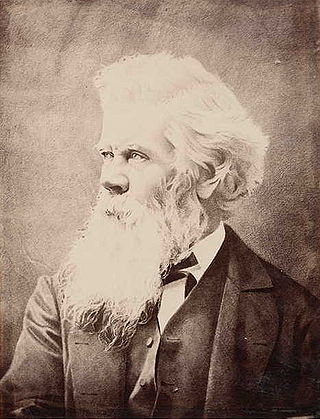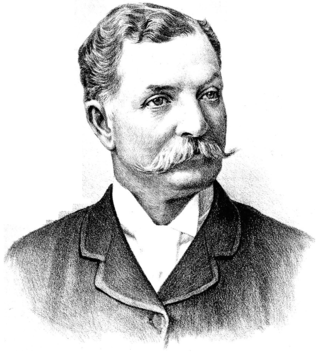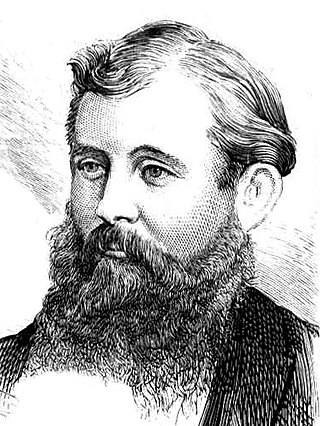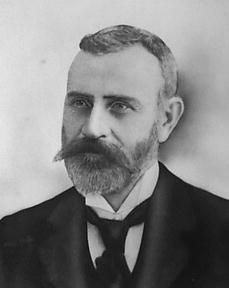Related Research Articles

Sir Henry Parkes, was a colonial Australian politician and longest non-consecutive Premier of the Colony of New South Wales, the present-day state of New South Wales in the Commonwealth of Australia. He has been referred to as the "Father of Federation" due to his early promotion for the federation of the six colonies of Australia, as an early critic of British convict transportation and as a proponent for the expansion of the Australian continental rail network.

Sir George Richard Dibbs KCMG was an Australian politician who was Premier of New South Wales on three occasions.

Sir Patrick Alfred Jennings, was an Irish-Australian politician and Premier of New South Wales.

Sir Francis Bathurst Suttor was an Australian pastoralist, politician, and sheep and horse breeder.

Sir Joseph Palmer Abbott, was an Australian politician, pastoralist and solicitor.
Robert Palmer Abbott was a politician and solicitor in colonial New South Wales, a member of both the Legislative Assembly and Legislative Council.

The fifth Parkes ministry was the 26th ministry of the Colony of New South Wales, and was led by the seventh Premier, Sir Henry Parkes. It was the fifth and final occasion that Parkes was Premier. The title of Premier was widely used to refer to the Leader of Government, but was not a formal position in the government until 1920. Instead the Premier was appointed to another portfolio, usually Colonial Secretary. Having served in the New South Wales Legislative Council between 1854 and 1856, Parkes was elected in the first free elections for the New South Wales Legislative Assembly held in 1856, however resigned from Parliament later that year. He served in the Assembly on several occasions, between 1858 and 1870, being forced to resign on 4 occasions due to his personal insolvency. He came to power as Premier on the first occasion in 1872, serving as Premier for a period of three years. However, Parkes lost the confidence of the Assembly following Governor Robinson's decision to release of the bushranger Frank Gardiner led to the defeat of the ministry in 1875.

Sir Robert Wisdom, was a politician in colonial New South Wales and Attorney General of New South Wales.

John Fitzgerald Burns was an Australian politician, member of the Parliament of New South Wales, Postmaster-General in the 1870s and Colonial Treasurer in the 1880s.

Jonathan Charles Billing Pockerage Seaver was an Irish-born Australian politician, engineer and surveyor.

William Consett Proctor was an English-born Australian solicitor and politician.
Members of the New South Wales Legislative Council who served from 1887 to 1889 were appointed for life by the Governor on the advice of the Premier. This list includes members between the elections commencing on 4 February 1887 and the elections commencing on 1 February 1889. The President was Sir John Hay.
Members of the New South Wales Legislative Council who served from 1885 to 1887 were appointed for life by the Governor on the advice of the Premier. This list includes members between the elections commencing on 16 October 1885 and the elections commencing on 4 February 1887. The President was Sir John Hay.
A by-election was held for the New South Wales Legislative Assembly electorate of Kiama on 13 January 1887 because of the resignation of Harman Tarrant, due to the pressures of his professional practice as a surgeon.

Francis Michael Punch was an Australian engineer, rower, hotel proprietor and local government politician who served as the first Mayor of the Borough of North Sydney and the final Mayor of the Borough of St Leonards.
New England, an electoral district of the Legislative Assembly in the Australian state of New South Wales, was created in 1859 and abolished in 1894.
St Leonards, an electoral district of the Legislative Assembly in the Australian state of New South Wales was created in 1894 and abolished in 1904.
A by-election was held for the New South Wales Legislative Assembly electorate of South Sydney on 4 June 1887 because Bernhard Wise was appointed Attorney General in the fourth Parkes ministry. Such ministerial by-elections were usually uncontested. Most of the ministry was not required to face a by-election as they had been appointed prior to the general election in February 1887. William Foster had been the Attorney General however he resigned on the ground that he had been promised an appointment to the Supreme Court and Henry Stephen had been appointed instead.
A by-election was held for the New South Wales Legislative Assembly electorate of New England on 10 January 1887 because of the resignation of William Proctor. He had been found guilty by a jury of having sat and voted in parliament whilst he had an interest in a contract with the Government and the statutory penalty of £500 was imposed. Proceedings were stayed pending Proctor's appeal to the Full Court of the Supreme Court, however he resigned stating that he desired to have the verdict of his constituents.
A by-election for the seat of Tenterfield in the New South Wales Legislative Assembly was held on 20 November 1884 because of the resignation of Sir Henry Parkes, stating that he was retiring from politics and that "I have no intention of seeking or accepting a seat in any future Parliament".
References
- 1 2 "Notice is hereby given that by an indenture of assignment". New South Wales Government Gazette . No. 570. 14 October 1887. p. 6859. Retrieved 8 May 2021– via Trove.
- ↑ "Sir Henry Parkes (1815–1896)". Former members of the Parliament of New South Wales . Retrieved 5 April 2019.
- ↑ "Writ of election: St Leonards". New South Wales Government Gazette . No. 581. 19 October 1887. p. 6997. Retrieved 8 May 2021– via Trove.
- ↑ Green, Antony. "1887 St Leonards by-election". New South Wales Election Results 1856-2007. Parliament of New South Wales . Retrieved 8 May 2021.